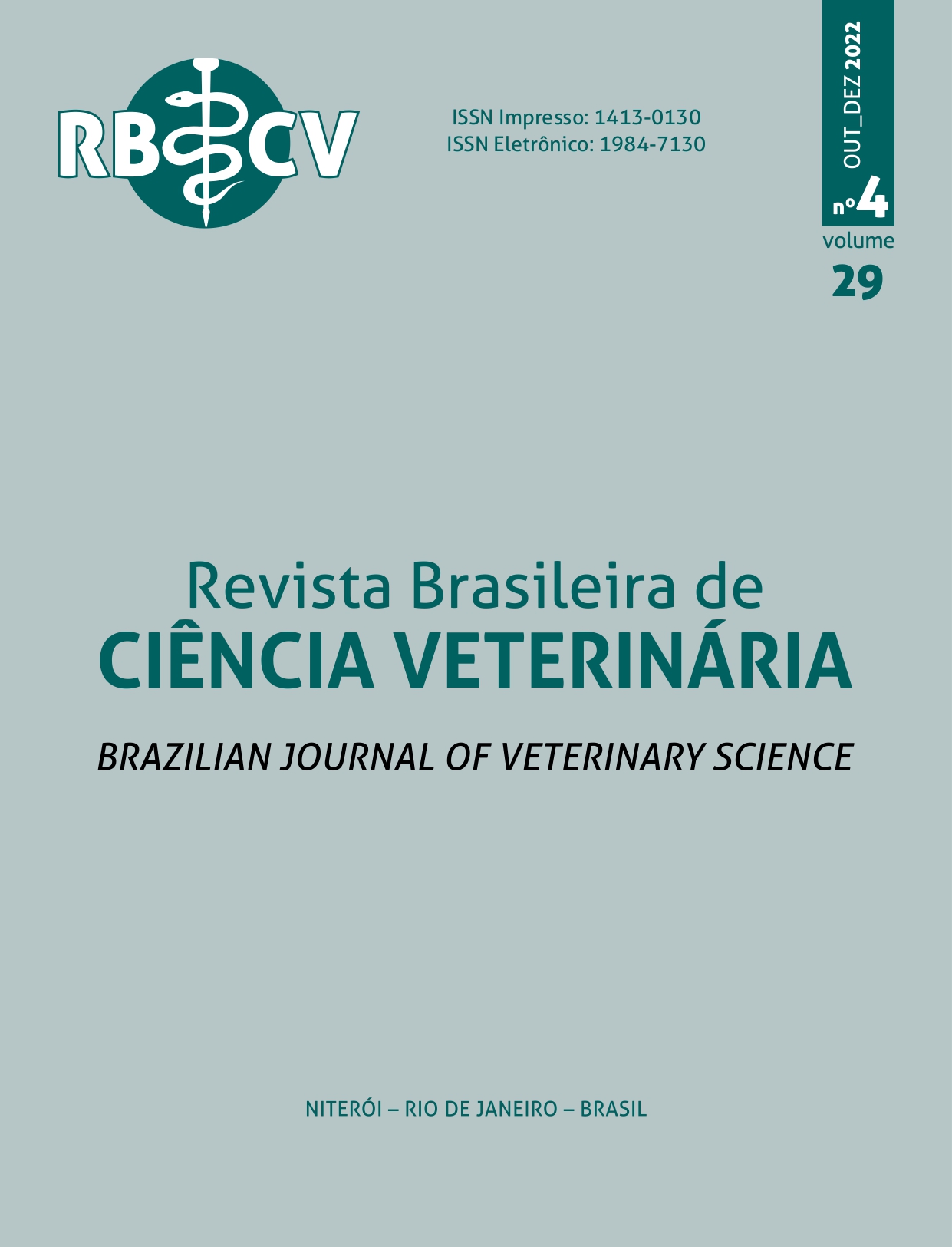Aspectos epidemiológicos da ocorrência de anticorpos anti-Sarcocystis spp. e anti-Toxoplasma gondii em cães da região norte do Brasil
Resumo
Conduzimos um estudo soroepidemiológico sobre a ocorrência de anticorpos anti- Sarcocystis spp. e anti-Toxoplasma gondii em cães de propriedades de agricultura familiar no município de Ji-Paraná, Rondônia. Amostras de sangue foram coletadas de cães aparentemente saudáveis, entre setembro de 2012 e novembro de 2013. Ao todo, foram analisados 181 soros sanguíneos por meio do ensaio de imunofluorescência indireta, sendo positivas 57 (31,49%) e 20 (11,04%) amostras para anticorpos anti-T. gondii e anti-Sarcocystis spp., respectivamente. As análises estatísticas demonstraram que o tipo de alimentação fornecida aos cães esteve associado à ocorrência de anticorpos anti-Sarcocystis spp. Em contraste a idade e o acesso à carcaça bovina foram fatores de risco para a presença de anticorpos anti-T. gondii. A alta ocorrência de cães soropositivos para Sarcocystis spp. e T. gondii evidencia a ampla distribuição desses agentes na área estudada, possivelmente devido à exposição humana e animal a essas espécies de protozoários. Além disso, o resultado dos anticorpos anti-T. gondii relacionados a idade do cão mostraram diferença estatística, com aumento significativo no número de animais positivos com a idade. Além disso, altos títulos de anticorpos (até 800) contra Sarcocystis spp. em cães sugerem a possibilidade de exposição recente, além da contaminação ambiental por oocistos/esporocistos eliminados pelas fezes desses animais.


